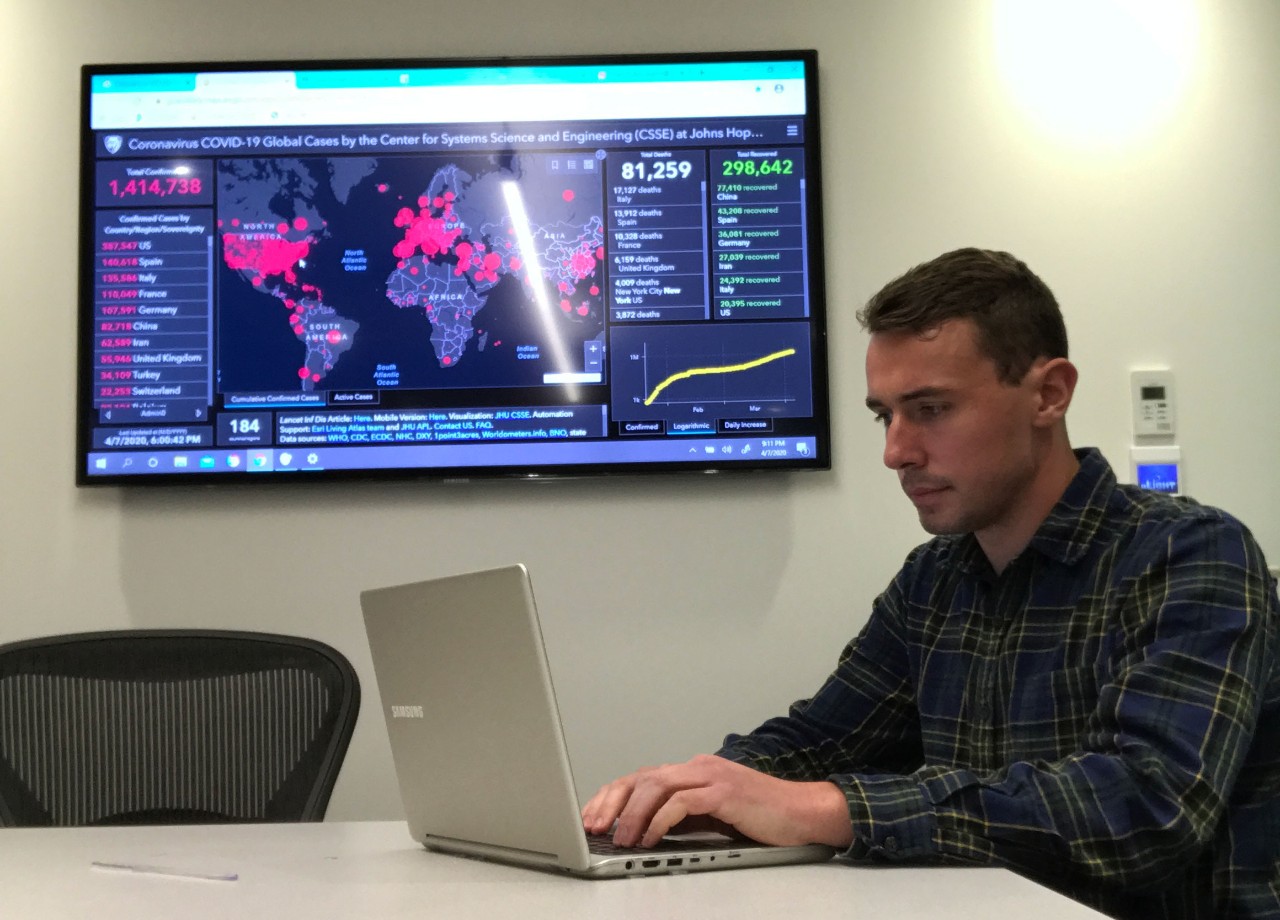
#UCtheGood: Lindner faculty member, students breathe life into ventilator startup
Problem-solvers join the Ventilator Project to tackle global ventilator shortage crisis
It all started with grim facts and figures.
On March 20, 2020, a Boston-based engineer and entrepreneur was informed that American medical centers were anticipating a 600,000-unit shortage of ventilators for treating patients with the Novel Coronavirus (COVID-19).
Also at that time, the global shortage was expected to be 13 million.
Immediately, he paused company operations at Watertown Robotics and founded The Ventilator Project to solve the complex problem that is the global ventilator shortage, a project that would, within a month, raise thousands of dollars and develop an initial product poised for widespread manufacturing.

The Ventilator Project, while founded in Boston, has Cincinnati ties through Lindner faculty member Sue Mantel and Lindner College of Business students contributing their skills towards the effort to tackle the global ventilator shortage crisis.
That Boston-based engineer and entrepreneur, Tyler Mantel, is the son of Sue Mantel, PhD ’94 and MBA ’86, marketing professor at the University of Cincinnati Carl H. Lindner College of Business. Within two weeks of its founding, the rest of the Mantel family — sons Ryan and Preston, Sue herself, and her husband, Mike, MBA ’83 — had joined Tyler’s effort and were recruiting likely candidates to join the team ranks or donate what they could to help raise the $2.4 million required to spool up manufacturing within 30 days.
“A ventilator is not really a complicated mechanical design, but it is a very complicated supply chain problem to get 13 million out in a few months,” said Ventilator Project Co-Founder Tyler Mantel. “The only people in the world that can rise to that sort of scale is startups.”
The Ventilator Project’s team consists of 200 multi-disciplinary individuals putting the theories of remote work, iterative product development, agile project management and navigating compressed review and testing processes into practice.
“When Tyler called to tell me he was going to do it, he said, ‘I need people, I need marketing, I need doctors …’ and, you know, we’ve always just kind of pulled together as a family,” said Professor Mantel, who leads e-marketing for The Ventilator Project. “We’re just really proud of all three of our sons and what they do in the real world, as well as coming together on a project like this, bringing their unique qualities to the cause and asking for help.”
The Ventilator Project has become more than a Mantel family affair. Lindner College of Business students who found themselves suddenly available due to cancelled study abroad or co-op experiences started applying for open roles and pivoting their career aspirations and experiential learning pursuits towards the cause.
We've always just kind of pulled together as a family. We’re just really proud of all three of our sons and what they do in the real world, as well as coming together on a project like this, bringing their unique qualities to the cause and asking for help.
Sue Mantel, PhD Marketing Professor, Lindner College of Business; E-marketing for The Ventilator Project
“These are war times for everyone right now; I wanted to do something to help this situation, and, hopefully, getting involved with the Ventilator Project is mine,” said Lucas Schirr, BBA ’21, who actually drove to Boston from Cincinnati in early April to work on-site with Tyler and Ryan Mantel on supplier relations, material sourcing and market research.
Other Lindner students who are contributing their skills and expertise to the Ventilator Project include Chris Mathes, BS ’21, Charlie MacKenzie, BBA ’21, and Quinn Villarreal, BBA ’21. The steep learning curve associated with remote work, innovation and taking initiative offers once-in-a-lifetime professional development with a purpose.

The Ventilator Project aims to manufacture and submit Aira, its flagship product, to the Emergency Use Authorization, which is part of the FDA. Photo provided by The Ventilator Project.
“I’ve learned from my past co-op experiences that you have to put yourself out there, and I think that mentality will translate well into a startup environment such as this,” said Schirr. “There is no other startup I’d rather work for right now.”
As of April 27, the Ventilator Project has raised $66,000 and developed its flagship product, Aira. After additional testing, verification and validation loops, the Ventilator Project plans to submit Aira for review by the Emergency Use Authorization authority, part of the U.S. Food & Drug Administration.
Featured photo: Lucas Schirr, BBA '21, works in a conference room on-site at the headquarters of The Ventilator Project in Boston. Schirr is a third-year student in the Lindner Honors-PLUS program majoring in business economics and business analytics. Photo provided by Schirr.
Tags
- Operations Management
- Experience-based Learning
- Venture Creation
- Data Analysis
- Health
- COVID-19
- Supply Chain Management
- Technology Adoption & Adaptation
- International Marketing
- #UCtheGood
- Lindner College of Business
- Next Lives Here
- Markets & Institutions
- International Management
- Technology & Innovation Management
Related Stories
The hottest toys this holiday season
December 15, 2025
Local 12 turned to Lindner College of Business associate professor-educator of marketing Roseann Hassey to explain what’s got the trendiest items flying off the shelves.
Leukemia and Drug Development Lab trains the next generation of scientific researchers
December 15, 2025
From undergraduate student workers to members of the Physician Scientist Training Program (PSTP), trainees in UC's Leukemia and Drug Development Lab shared their experiences of in-depth, hands-on training that contribute to real-world discoveries.
Fall grads celebrate their success at commencement
December 12, 2025
The University of Cincinnati recognized more than 2,600 graduates at its fall commencement.
